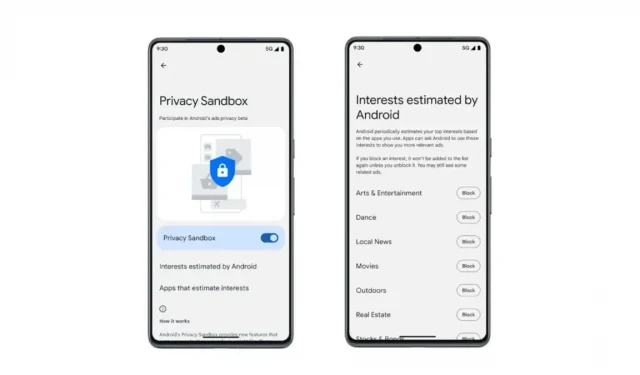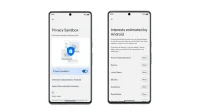Google is starting to roll out a beta version of its privacy sandbox, which is the beginning of the end for ad targeting on Android devices.
Google is releasing a beta version of its Android privacy sandbox. This is an attempt to combine user privacy and targeted advertising, which the search giant has been working on for several years to distance itself from cookie-based tracking.
Google launches beta version of its privacy sandbox
One of the pillars of this privacy sandbox is a theme API that retrieves a list of your interests based on your habits. The system then compares this to the Interactive Advertising Bureau database and Google data. Partner publishers can query this API, which thus provides a list of interests in order to offer more relevant ads without sharing intrusive information. Google explains that these interest centers are “only kept for three weeks and older topics are deleted.”In addition, data and processing are carried out on the device “without any connection to external servers, including those of Google”.
This beta marks the first time the Privacy Sandbox has gone public on Android. Google is still working on a version for Chrome, which developers have been testing for about a year. Mountain View explains that it received feedback from hundreds of companies that helped create this product.
The Privacy Sandbox is Google’s response to Apple’s App Tracking Transparency (ATT) that the iPhone maker introduced in iOS 14.5. This feature requires the user’s consent to track the user across apps and websites. Google called ATT a “bad approach”because it doesn’t offer alternatives to app developers and advertisers to replace the lost revenue from cookie targeting.
The Beginning of the End for Android Ad Targeting
Privacy versus publicity, a war that has its roots in the distant past. When platforms like iOS thwart traditional methods of generating ad revenue, advertisers can (and do) resort to fingerprinting: the collection of seemingly innocent-looking information, which in turn can identify you in much the same way like using cookies. Unfortunately, this practice is very difficult to detect and prevent. Google hopes its privacy sandbox will strike the right balance between privacy and revenue for advertisers and developers.
Lastly, Google indicates that this beta of its privacy sandbox will roll out gradually, starting with “a small percentage of devices running Android 13.”You will see a notification on your device inviting you to join the beta if you qualify. Once accepted, you can visit the new “Privacy Sandbox”section in your device settings to see what interests are associated with you and remove them individually if you wish. This menu also allows you to exit the program.


